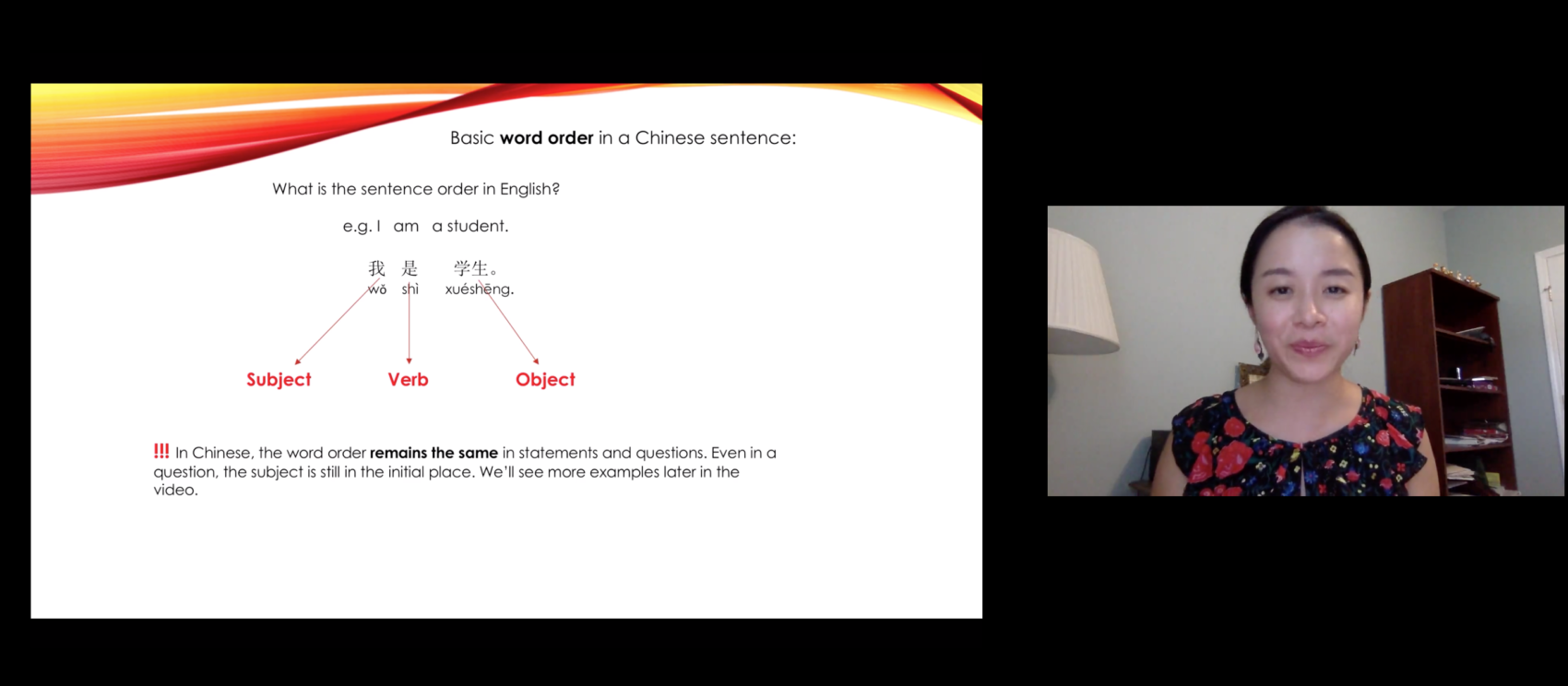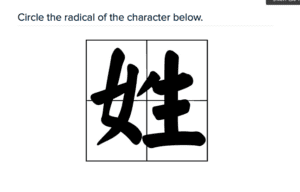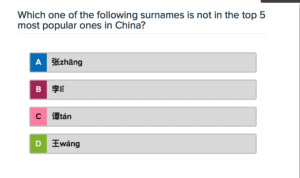Virtual Meets Reality in Coastal Carolina Xinyi Tan’s Language Classroom

Guest authored by Sara Sobota & Parag Desai of Coastal Carolina University.
As technology continues to reinvent our everyday lives, academic instructors recognize a need to respond to major shifts in our transnational, digital society. The traditional classroom is gradually expanding into virtual territory, a process that offers unique opportunities for lecturers to transform the learning experience for students. Xinyi Tan is a model for that evolution.
Tan, assistant professor in Coastal Carolina University’s Department of Languages and Intercultural Studies and director of the Chinese language program, is the recipient of the 2019 Echo360 Academic Champion Grant, awarded to only eight applicants throughout the nation. Tan was awarded a grant of $3,000 for her use of Echo360, a blended-learning apparatus that records the teacher’s voice, face, and gestures and uploads the lesson to online educational portals such as Moodle and Blackboard.
Since Tan began her employment at CCU in August 2018, she has explored innovative pedagogical approaches for students’ second language acquisition. She learned about the Echo360 program through a hybrid-learning workshop organized by CCU’s Office of Online Learning (COOL) and identified its potential use in language instruction.
“Considering online learning is a popular trend, I believe that multimedia technologies such as Echo360 will allow me to bring more active learning to my language courses,” Tan said.
Tan first came to the U.S. from China to pursue her B.A. in English education at the University of South Carolina-Upstate (’14) and earned her Ph.D. in Francophone studies at Ohio State University (’18). Tan applied for the grant in hopes of supporting the conversation of interdisciplinary learning for her CHIN115 course.
Echo360’s lecture capture function offers an active learning platform and increases the level of engagement in the classroom setting. Given the rise in technological developments, Tan explained, incorporating multimedia into the conventional classroom model brings a more substantive and intensive kind of learning.

The program is intuitive and ties to Moodle LMS, the online classroom module already offered for students and faculty, which means that Echo360 offers a better approach to learning and also cooperates with CCU’s established digital traditions.
With the ability to review coursework with high-quality audio and visual presentations at the student’s disposal, hybrid learning modules like Echo360 are excellent tools for learners to review and practice at their own pace.
“It is worth noting that to acquire a language, students need to have ample exposure to the vocabulary and the grammar of the language before being able to internalize the language and eventually communicate in it,” said Tan.
In Tan’s blended/hybrid introductory Chinese course, she has uploaded tutorials and a corresponding lecture commentary into Echo360 so students can access the content through their Moodle LMS before starting the lesson.
“Echo360 creates an active learning platform which allows me to pause my presentations to invite students to make comments
and ask questions. Prior to class, I review their questions and comments and clarify their common struggles with emphasis,” Tan said. “I have also created a dozen videos focusing on important grammar and vocabulary of each lesson. My students appreciate the videos and the interactive activities embedded in them.”
Tan notes that the instruction she received through the hybrid-learning workshop was invaluable to both the development of her course and her award.
I would never have received this grant without the help and support from the COOL office, especially its director, Dr. Sherri Restauri,” said Tan. “My training at the workshop taught me how to create multimedia resources in order to enhance student learning in a hybrid course. After using Echo360 for the first time to create a tutorial for my Chinese introductory course, I was convinced that the tool was an effective resource because its lecture capture function generated vivid explanations of learning materials, which helped students feel connected to their instructors.”
Restauri had recommended that Tan apply for the grant based on Tan’s motivation and excitement about the Echo360 features and how they would open pathways of student learning.
“When the Echo360 vendor asked me for faculty recommendations on who should apply for the grant, Xinyi was the first person to come to mind,” said Restauri. “She took the initiative to pick up the learning tool and look at it comprehensively. She was asking not just ‘How can I record a lecture?’ but ‘How can they learn from this, and how can they review it again and again?’ She’s motivated to learn every pedagogical technique she can to help her students.”
In addition to the grant, Tan was funded to attend a two-day face-to-face workshop in June 2019 at the University of Michigan in Ann Arbor, Mich., and the Echo360 community conference at Columbia University in July.
Tan has fully immersed Echo360 into her class design for her Fall 2019 classes.
To find out more about Echo360, contact us.


